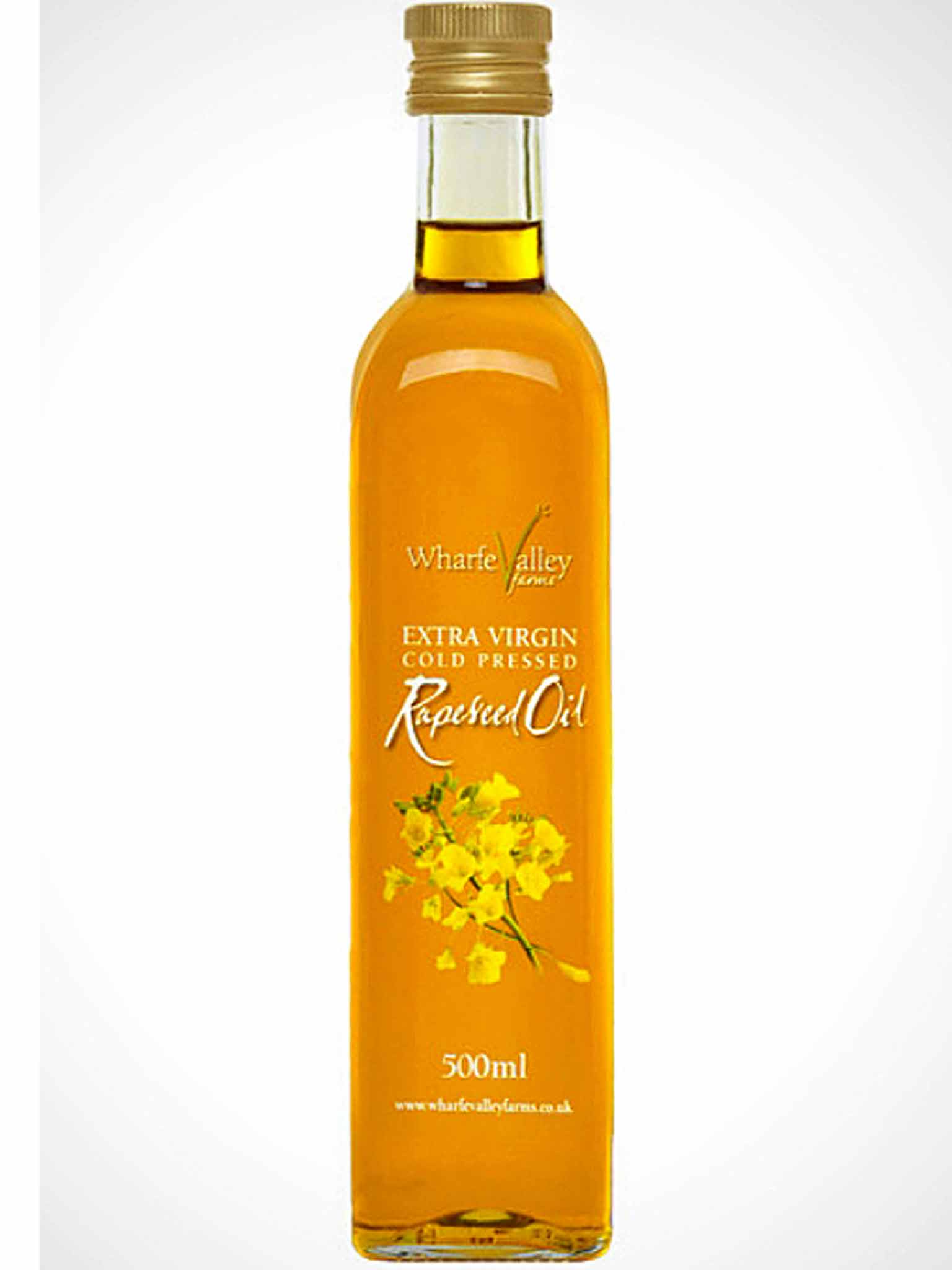The rise of rapeseed oil: Soaring demand shown in supermarket sales
Put down the olive oil, step away from the sesame – rapeseed oil has long been the chefs' favourite, and now it's flying out of the shops as the rest of us catch on

Since opening his Ribble Valley pub six years ago, Steven Smith has used only rapeseed oil in his award-winning cooking. "As much as I like olive oil," he says, "good olive oil is very powerful."
Rapeseed oil is much more humble. Its detractors describe it as bland and point to the "cabbagey" flavour of some oils, owing to its membership of the brassica family.
Smith celebrates its lightness and versatility. "It has a great colour, but it's also much lighter than olive oil, and takes on the flavour of whatever it's used with," he says. "It's much better for using as a base."
His food at Freemasons at Wiswell, which was named The Good Food Guide's top British Pub last year and Visit England's Best Tourism Pub last week, trades on its use of British produce, and Smith is just one in a very long line of UK chefs who are turning to rapeseed oil over its better-known Italian cousin. As well as wanting to use local products, he believes it's important to support our farmers.
As it happens, the rapeseed farmers aren't short of support now. Mark Hix, Nigella Lawon, Ollie Dabbous, Tristan Welch of Launceston Place and Hugh Fearnley-Whittingstall are all fans. Even Jamie Oliver, well known for his budget-bustingly liberal use of extra virgin olive oil, has praised it.
And you know those triple-cooked chips from the high-end steak restaurant Hawksmoor? The fried potato chip so palate-meltingly crunchy, fluffy, oily and flavoursome it practically secured the brand's future, never mind all that fancy beef? That's right: rapeseed oil.
If you don't fry potatoes in it three times, rapeseed is also considered a healthy oil. It is high in Omega 3, 6 and 9 and low in saturated fat. With a higher smoking point than olive oil, the goodness isn't lost as quickly in the cooking process.
Anyone who's taken a summer drive through the British countryside over the past decade will have seen how the typically brown and green patchwork quilt of fields is now studded with stretches of sunny gold rape, which come alive in May and June.
The soaring demand for rapeseed oil is shown in supermarket sales. Both Waitrose and Tesco report a 30 per cent increase year on year. Aldi, not known for its attention to local sourcing, rolled out a cold-pressed rapeseed oil into 494 stores late last year and is shifting 80,000 bottles a week, an 8 per cent share of the country's £14m industry. According to Phoenix Speciality Oils, which supplies Aldi and runs the UK's largest coldpress facility in Redhill, Nottingham, the market is growing by 40 per cent each year. Aldi expects to sell one million bottles, at £1.99 each, in the first 12 months.
Just to be clear: our consumption of oil made from rape isn't new. One third of all the vegetable oil produced globally comes from rapeseed. But cheap cooking oils are refined, which means the rape is pressed with methods using plenty of heat and chemicals to extract as much oil from the plant as possible. The new demand for rapeseed oil comes from the realisation, by a number of small producers, that they could make a high quality, cold-pressed oil which offered a home-grown and cheaper alternative to consumers than olive oil. One of the first, Farrington's, was advised they would struggle to shift any owing to the image problem of the crop's name. So the company decided to market the oil as Mellow Yellow, and production has grown more than tenfold in 10 years of production.
Sixty-odd miles east of Wiswell, Geoffrey Kilby is growing rapeseed on his family farm in Yorkshire's Wharfe Valley. His wife Sallyann tells me the crop was introduced in the 1980s as a break crop, to replenish the soil ahead of the replanting of cereals.
It wasn't until 2006 that they produced their first bottle of cold-pressed oil, and today they sell several hundred thousand bottles of their two brands, Wharfe Valley and Yors, each year to farm shops, delicatessens and supermarkets.
Better quality oils from smaller producers cost more than Aldi's offering, of course. A Wharfe Valley oil starts at £4 for 250ml. South Devon producer Bell & Loxton sell 700ml for £6.
Is there a downside? It has been reported that hayfever and asthma sufferers struggle when near fields of rape because of certain oils it emits into the air when flowering. If you limit your contact with rapeseed to the cold-pressed stuff in a bottle, using it to marinade your Sunday joint or whip into a mayonnaise, you'll be just fine.
Join our commenting forum
Join thought-provoking conversations, follow other Independent readers and see their replies
Comments
Bookmark popover
Removed from bookmarks